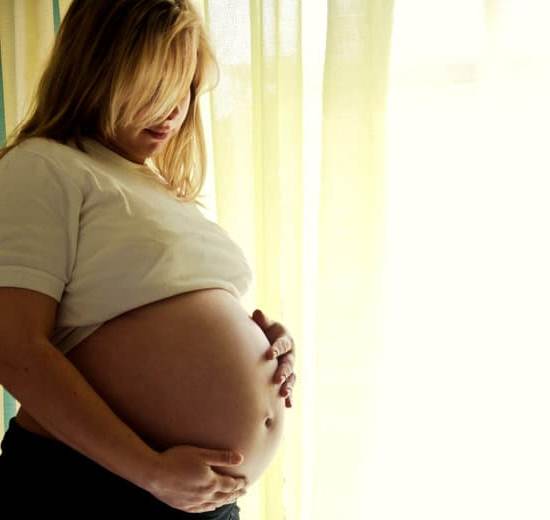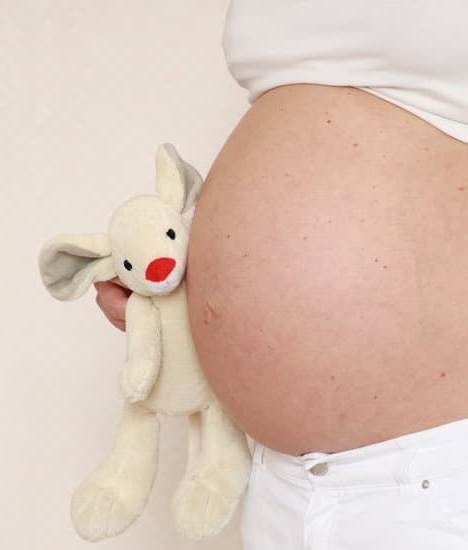The question “Is green tea safe during pregnancy?” is a common concern for expecting mothers who are mindful of their diet and lifestyle choices.
Pregnancy is a crucial time for both the mother and the developing baby, and maintaining a healthy diet is essential for ensuring optimal health and well-being. The role of diet in promoting a healthy pregnancy cannot be overstated, as it directly impacts the growth and development of the fetus, as well as the overall health of the expectant mother.
While green tea has been associated with numerous health benefits for non-pregnant individuals, its safety during pregnancy has been a topic of debate. With its potential to promote weight loss, boost metabolism, and provide antioxidant properties, green tea has gained popularity as a health-promoting beverage. However, its caffeine content and other elements raise questions about its safety for pregnant women.
In this article, we will delve into the potential benefits of green tea for non-pregnant individuals, examine its caffeine content and how it could impact pregnancy, highlight its antioxidant properties, address potential risks and concerns associated with consuming green tea during pregnancy, provide expert recommendations for safe consumption during pregnancy, discuss alternative pregnancy-safe beverages that offer similar health benefits to green tea.
Let’s explore the safety and potential benefits of green tea during pregnancy to help expectant mothers make informed decisions about their dietary choices.
Benefits of Green Tea
Green tea has been revered for its numerous health benefits for centuries, and many individuals have incorporated it into their daily routine. Studies have shown that green tea is rich in antioxidants and other compounds that offer a range of potential health benefits, ranging from improved heart health to reduced risk of certain types of cancer.
The question remains: is green tea safe during pregnancy? While the benefits of green tea for non-pregnant individuals are well-documented, the impact of this beverage on pregnancy requires careful consideration.
Antioxidant Properties
One of the key reasons why green tea is celebrated for its health-promoting properties is its high antioxidant content. Antioxidants play a crucial role in protecting cells from damage caused by free radicals, thereby reducing inflammation and lowering the risk of chronic diseases. For non-pregnant individuals, regularly consuming green tea may contribute to overall well-being and disease prevention.
Heart Health Benefits
Several studies have suggested that green tea could be beneficial for heart health, potentially lowering the risk of heart disease and stroke. The beverage’s ability to improve blood flow and lower cholesterol levels may be particularly advantageous for non-pregnant individuals with pre-existing cardiovascular conditions or those at risk of developing such conditions.
Weight Management
Another potential benefit of green tea for non-pregnant individuals is its role in weight management. Some research indicates that the compounds found in green tea could enhance metabolism and assist with fat loss, making it a popular choice among those looking to maintain a healthy weight. However, it is important to note that these effects may not necessarily apply to pregnant women due to their unique nutritional needs during this critical time.
Caffeine Content
Green tea is a popular beverage known for its potential health benefits, including its antioxidant properties and ability to promote overall well-being. However, when it comes to pregnancy, there are concerns regarding the caffeine content in green tea and its potential impact on the developing fetus.
The caffeine content in green tea can vary depending on factors such as brewing time and type of tea leaves used. It’s important for expectant mothers to understand the potential risks associated with consuming caffeine during pregnancy.
Caffeine is a stimulant that can cross the placenta and reach the fetus, which may affect the baby’s heart rate and metabolism. The American College of Obstetricians and Gynecologists (ACOG) recommends that pregnant individuals limit their caffeine intake to 200 milligrams per day, which is roughly equivalent to one 12-ounce cup of coffee. When it comes to green tea, it’s important to consider its caffeine content and consume it in moderation during pregnancy.
While green tea contains less caffeine than coffee, it still contains enough to warrant caution during pregnancy. It’s also worth noting that some herbal teas or supplements may contain additional ingredients that could potentially be harmful during pregnancy, so it’s essential for expectant mothers to exercise caution and consult with their healthcare provider before consuming any type of tea or supplement.
Antioxidants
During pregnancy, the body’s need for antioxidants increases to help protect against oxidative stress. Antioxidants are important for neutralizing free radicals and reducing inflammation, which is especially crucial for pregnant women to support both their own health and the development of their baby. Green tea contains a high concentration of antioxidants, particularly catechins, which are known for their powerful health benefits.
Antioxidant Properties of Green Tea
Green tea is rich in polyphenols, particularly a type called catechins. These compounds have been shown to have strong antioxidant properties, helping to combat oxidative damage in the body. The most potent catechin found in green tea is epigallocatechin gallate (EGCG), which has been studied for its potential role in reducing the risk of chronic diseases.
Potential Benefits for Pregnant Women
The antioxidant properties of green tea can be beneficial for pregnant women in several ways. By reducing oxidative stress and inflammation, green tea may help support overall maternal health during pregnancy. Additionally, some studies suggest that the consumption of antioxidants during pregnancy may contribute to a lower risk of certain complications, such as preeclampsia and gestational diabetes.
While it is important to consider the potential benefits of consuming green tea during pregnancy, it is equally essential to understand any associated risks or concerns. It is advised that pregnant women consult with their healthcare provider before making any significant changes to their diet or lifestyle, including the consumption of green tea. By discussing individual health status and receiving personalized recommendations, expectant mothers can make informed decisions about including green tea in their pregnancy diet.
Risks and Concerns
During pregnancy, many women are cautious about the foods and beverages they consume to ensure the health and well-being of their developing baby. One common question that often arises is whether green tea is safe to drink during pregnancy. While green tea is known for its potential health benefits, it’s important for expectant mothers to be aware of the potential risks and concerns associated with consuming this beverage during pregnancy.
One of the main concerns regarding the consumption of green tea during pregnancy is its caffeine content. Green tea contains caffeine, which is a stimulant that can cross the placenta and reach the developing baby. High levels of caffeine consumption during pregnancy have been linked to an increased risk of miscarriage and low birth weight. Therefore, it is important for pregnant women to carefully monitor their caffeine intake from all sources, including green tea.
On the other hand, green tea also contains a high concentration of antioxidants, such as catechins, which have been associated with various health benefits, including reducing the risk of certain chronic diseases. Some studies suggest that these antioxidants may also offer potential benefits for pregnant women by supporting overall health and well-being. However, more research is needed to determine the specific effects of green tea antioxidants on pregnancy.
While moderate consumption of green tea is generally considered safe for most adults, pregnant women should exercise caution when it comes to consuming this beverage. It is recommended that pregnant women limit their caffeine intake to no more than 200 milligrams per day, which equates to roughly one 12-ounce cup of green tea. Additionally, it’s always best to consult with a healthcare professional before making any changes to your diet or lifestyle during pregnancy.
| Risks and Concerns | Green Tea Consumption During Pregnancy |
|---|---|
| Caffeine Content | High levels of caffeine in green tea can pose risks for pregnant women. |
| Antioxidants | Green tea contains antioxidants that may offer potential benefits for pregnant women. |
| Risks and Concerns | Pregnant women should limit their caffeine intake from all sources, including green tea. |
Recommendations
During pregnancy, it is essential to be mindful of the foods and beverages consumed, as they can directly impact the health of both the mother and the developing baby. This includes being cautious about the consumption of drinks containing caffeine, such as green tea. While green tea is known for its potential health benefits, including its antioxidant properties and potential protective effects against certain chronic diseases, it is important to consider its caffeine content when pregnant.
Expert recommendations suggest that pregnant women should limit their daily caffeine intake to 200 milligrams or less. This also applies to green tea, as it contains caffeine. It is worth noting that different types and brands of green tea may contain varying amounts of caffeine, so it is crucial to read labels and be mindful of portion sizes when consuming green tea during pregnancy.
To ensure safe consumption of green tea during pregnancy, here are some expert recommendations and guidelines:
- Limit intake: It is advisable for pregnant women to limit their green tea consumption to 1-2 cups per day.
- Opt for decaffeinated: Consider choosing decaffeinated green tea options, which can still offer some health benefits without the stimulating effects of caffeine.
- Consult healthcare provider: As with any dietary changes during pregnancy, it is recommended to consult with a healthcare provider or a registered dietitian before making significant adjustments to one’s diet.
In addition to these recommendations, it is important for pregnant women to prioritize hydration by consuming plenty of water throughout the day. Other pregnancy-safe beverages that offer similar health benefits to green tea include herbal teas such as rooibos, ginger tea, and certain fruit-infused waters.
Alternative Options
When it comes to making healthy beverage choices during pregnancy, it is important to consider alternatives to green tea that offer similar health benefits. While green tea can be a source of antioxidants and other beneficial compounds, the presence of caffeine may be a concern for some pregnant individuals. Fortunately, there are several pregnancy-safe beverages that can provide similar health benefits without the potential risks associated with caffeine consumption.
Here are some alternative options to consider:
1. Herbal Teas: Herbal teas such as chamomile, peppermint, and ginger are caffeine-free options that can be enjoyed during pregnancy. These teas not only provide hydration but also offer various health benefits such as soothing digestion and reducing nausea.
2. Rooibos Tea: Rooibos tea is a popular caffeine-free herbal tea that originates from South Africa. It is rich in antioxidants and provides a unique flavor profile that is similar to green tea. Pregnant women can enjoy the benefits of antioxidants without worrying about the effects of caffeine.
3. Fruit Infused Water: Staying hydrated during pregnancy is essential, and fruit-infused water is a refreshing way to do so. By infusing water with fresh fruits like strawberries, oranges, or cucumbers, pregnant women can enjoy a flavorful and hydrating beverage that also provides essential vitamins and minerals.
It is important for pregnant women to consult with their healthcare provider before making any significant changes to their diet, including adding new beverages. While these alternative options can provide similar health benefits as green tea, it is crucial for expectant mothers to prioritize their health and well-being throughout their pregnancy journey.
Conclusion
In conclusion, the question of whether green tea is safe during pregnancy is a complex one. While green tea has numerous potential health benefits for non-pregnant individuals, its caffeine content and the potential risks associated with pregnancy raise concerns about its safety for expectant mothers. The antioxidant properties of green tea are appealing, but experts recommend caution when it comes to consuming it during pregnancy.
Given the uncertainty surrounding the safety of green tea during pregnancy, it is essential for expectant mothers to consult with their healthcare providers before including green tea in their diet. Each pregnancy is unique, and individual circumstances can influence the safety and suitability of consuming green tea. It is important to prioritize the health and well-being of both the mother and the developing fetus.
For pregnant women who are looking for alternative beverages that offer similar health benefits to green tea, there are several options available. Herbal teas such as peppermint or ginger tea can provide soothing qualities without the caffeine content found in green tea. Ultimately, while there may be potential benefits of green tea for non-pregnant individuals, caution and guidance from healthcare professionals are paramount when considering its consumption during pregnancy.
Frequently Asked Questions
Can Pregnant Lady Drink Green Tea?
Pregnant women can consume green tea in moderate amounts. However, it’s important to keep the caffeine intake below 200 mg per day, which is about one or two cups of green tea. It’s also advisable to consult with a healthcare provider before adding green tea to your diet during pregnancy.
What Teas Are Not Safe During Pregnancy?
Some teas are not safe for pregnant women due to their caffeine content or potential effects on pregnancy. These include herbal teas like black and oolong teas, which have higher caffeine levels compared to other teas. Additionally, herbal teas such as chamomile, hibiscus, and raspberry leaf may have uterotonic effects and are best avoided during pregnancy.
What Not to Drink During Pregnancy?
During pregnancy, it’s essential for women to avoid certain beverages that can be harmful to both the mother and the baby. Alcoholic beverages should be completely avoided as they can lead to fetal alcohol spectrum disorders.
Caffeine intake should be limited, so excessive consumption of coffee, energy drinks, and strong teas should be avoided as well. It’s crucial for pregnant women to prioritize hydrating and nutritious beverages like water, milk, and fruit juices while avoiding sugary drinks and unpasteurized dairy products.

Welcome to my fertility blog. This is a space where I will be sharing my experiences as I navigate through the world of fertility treatments, as well as provide information and resources about fertility and pregnancy.





